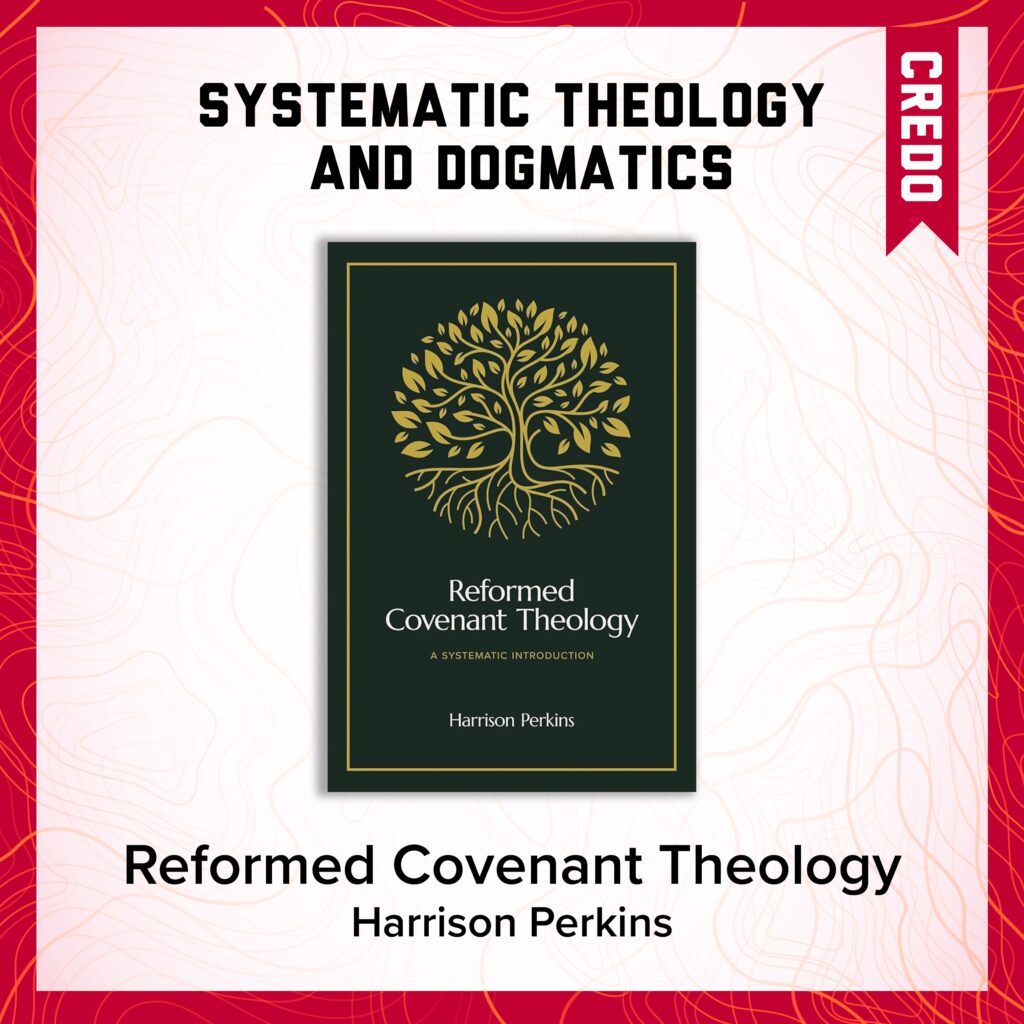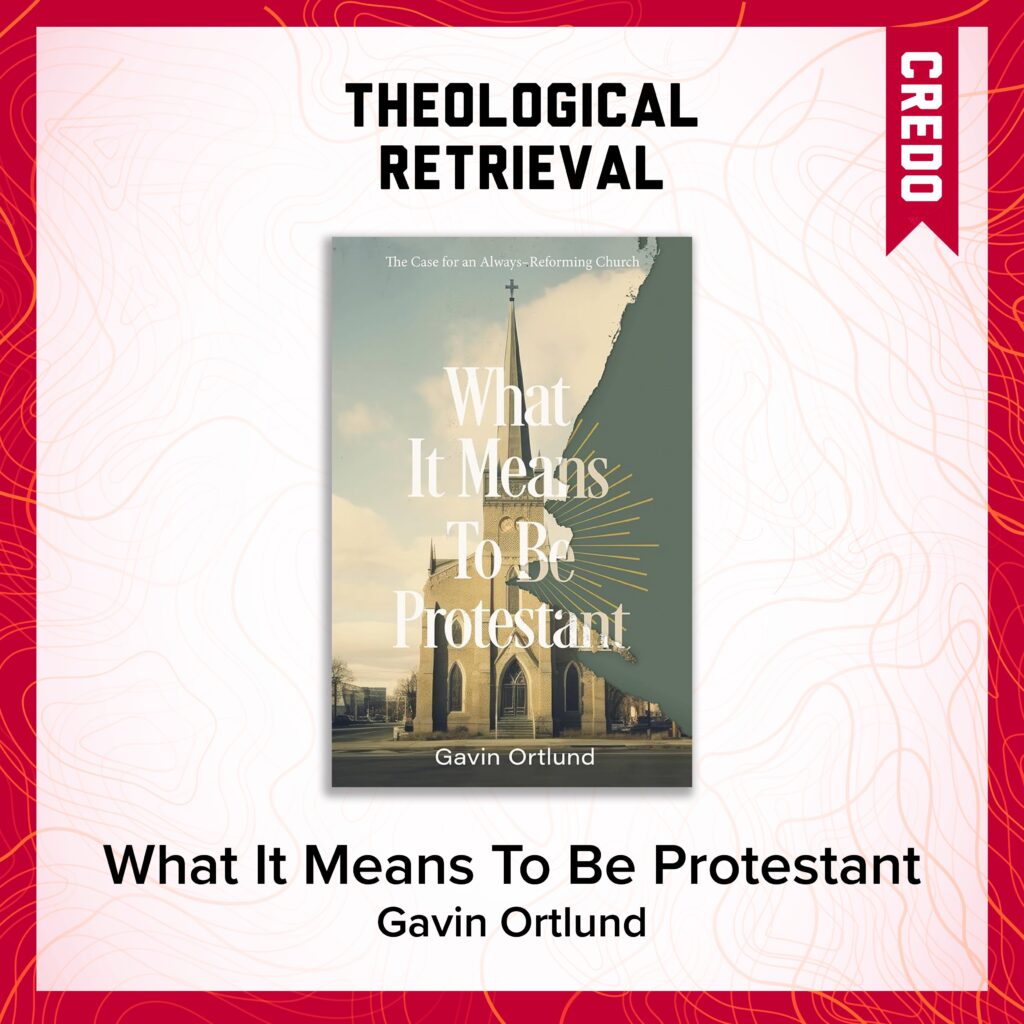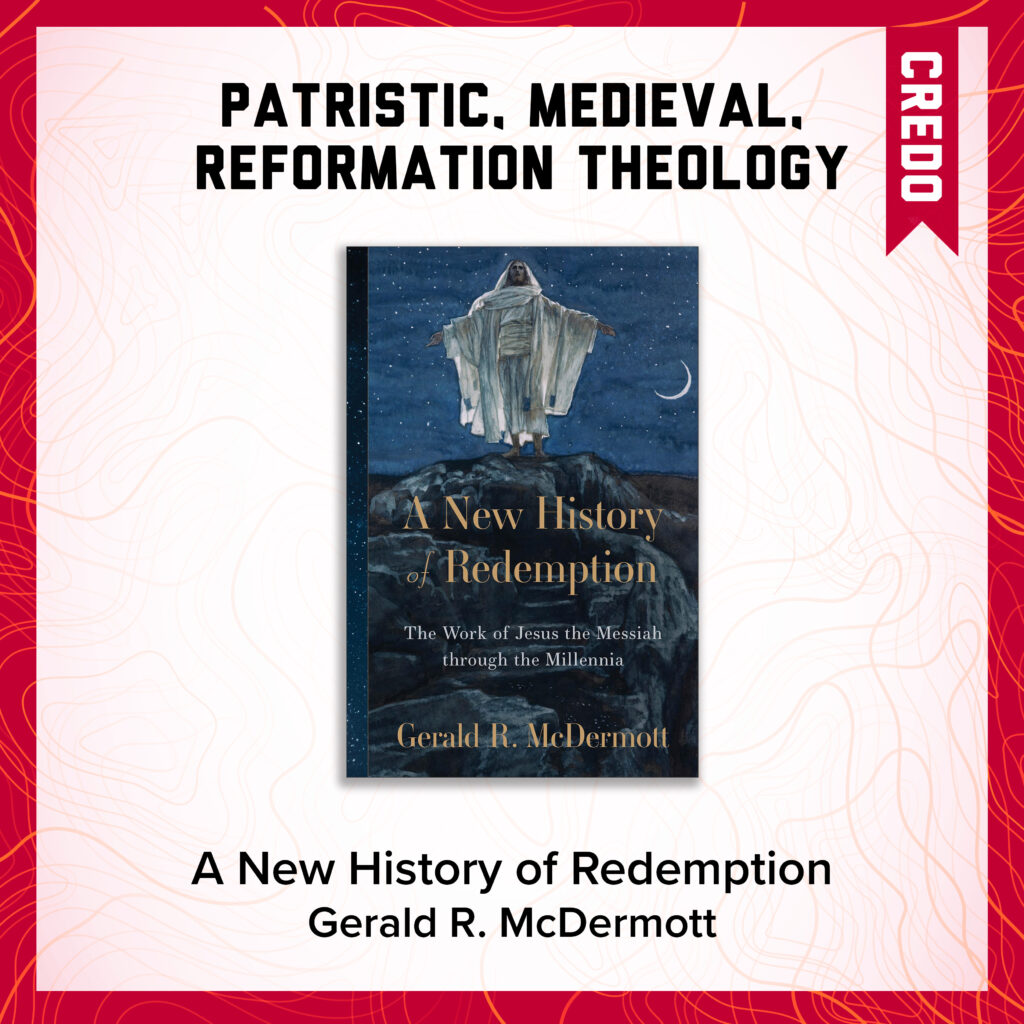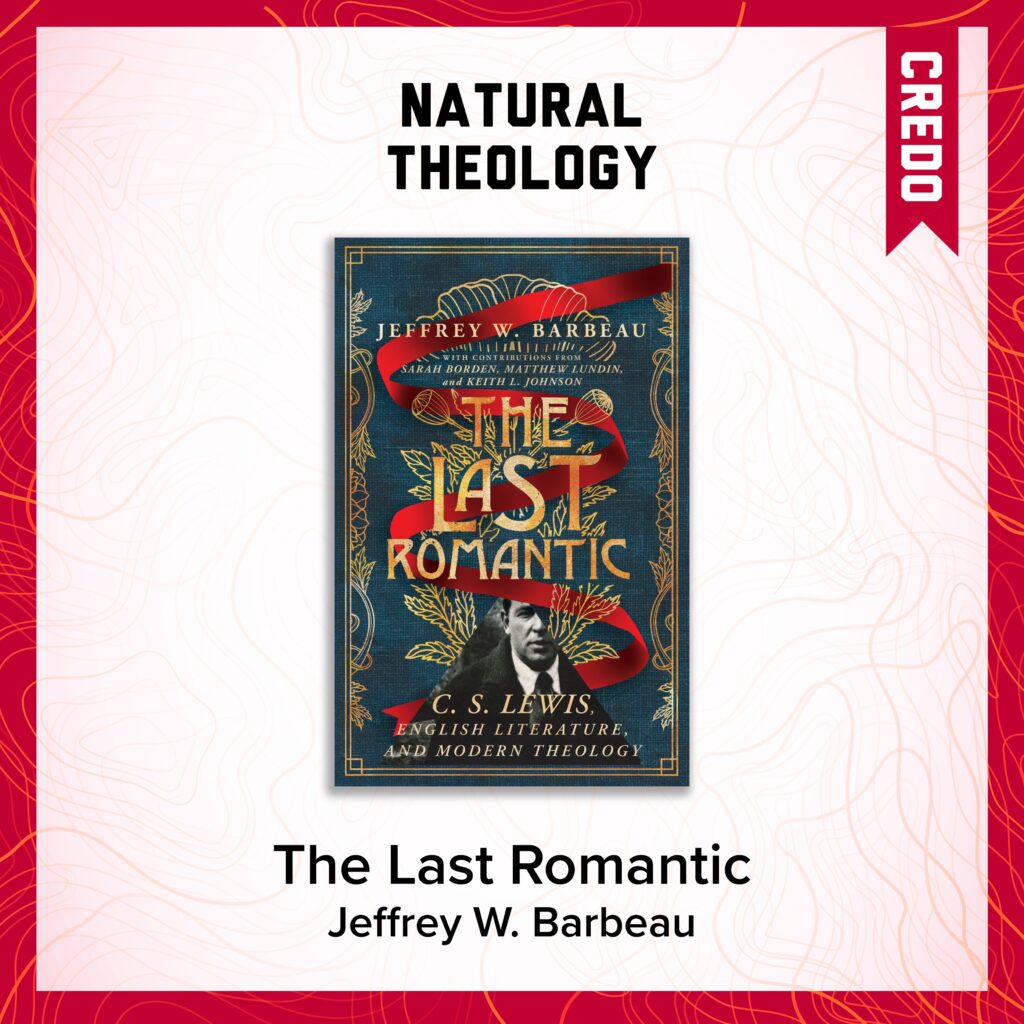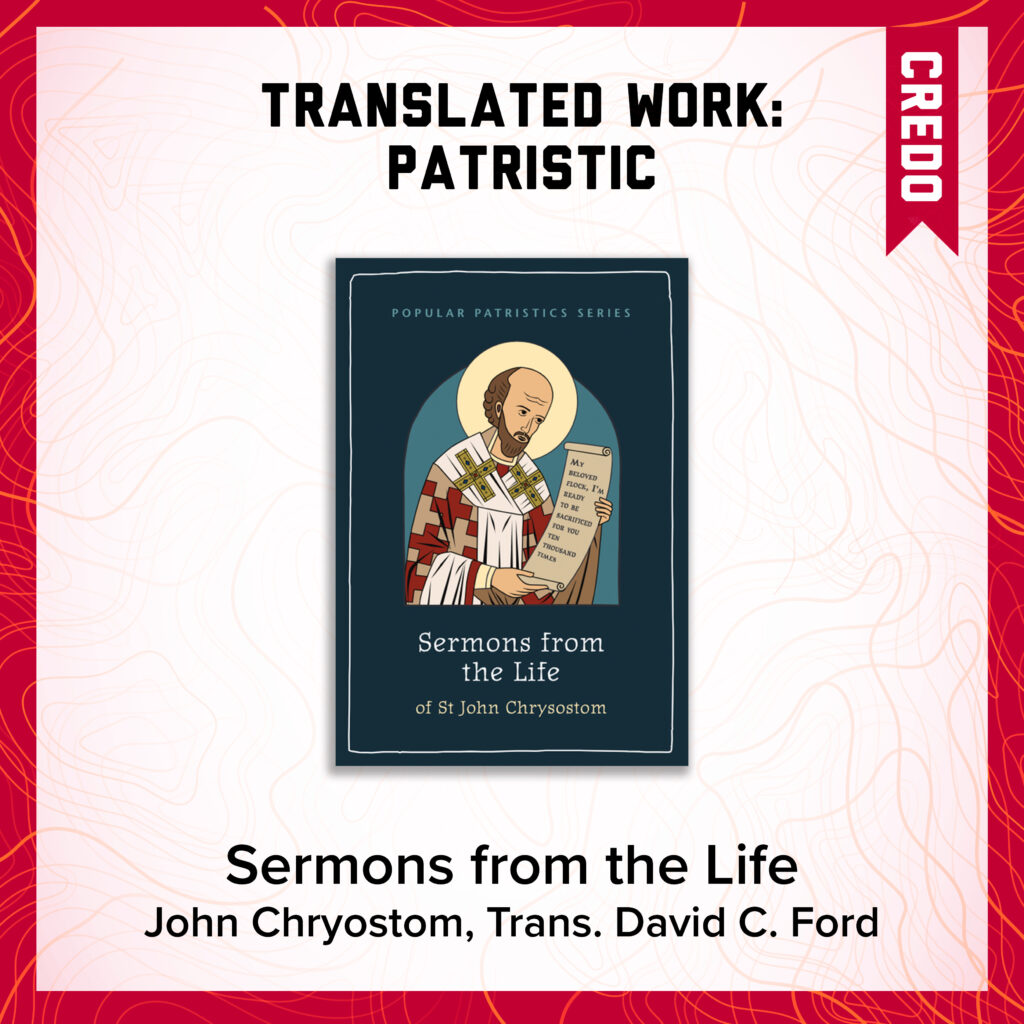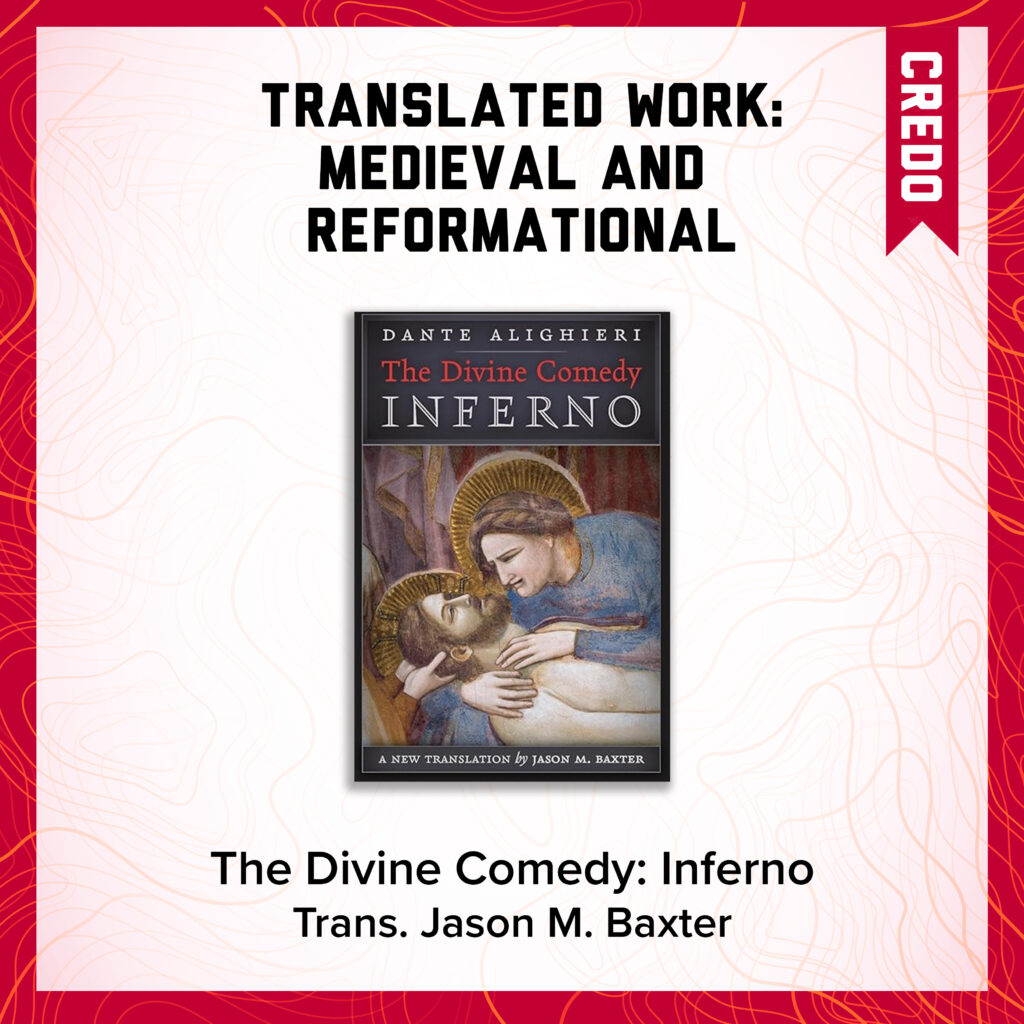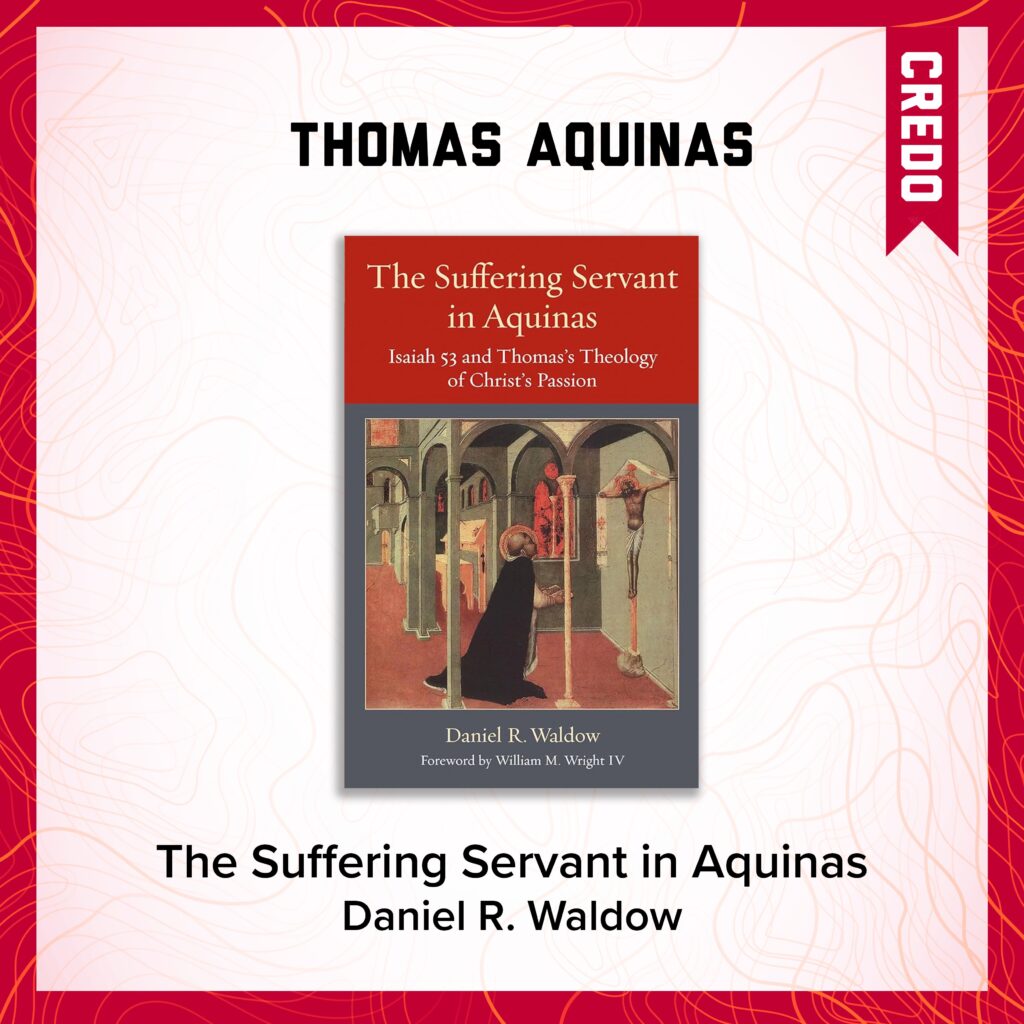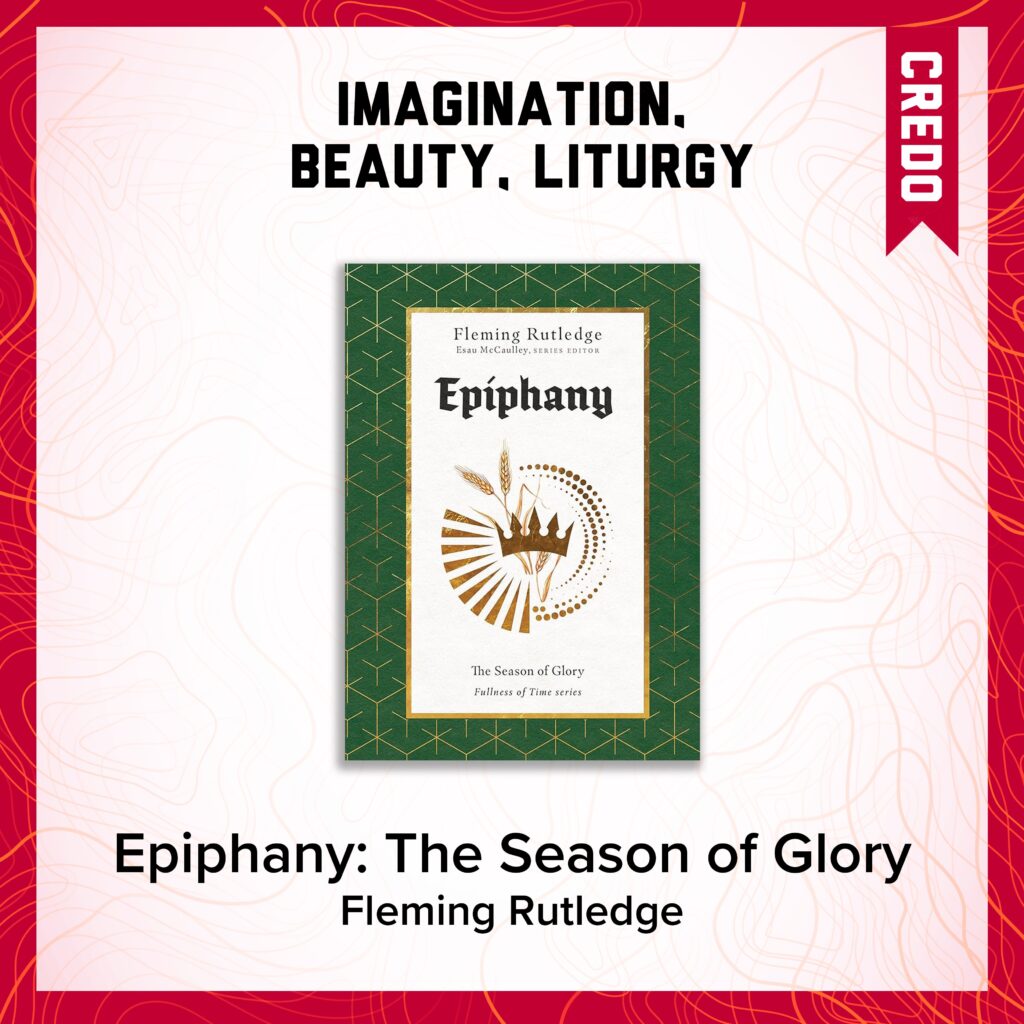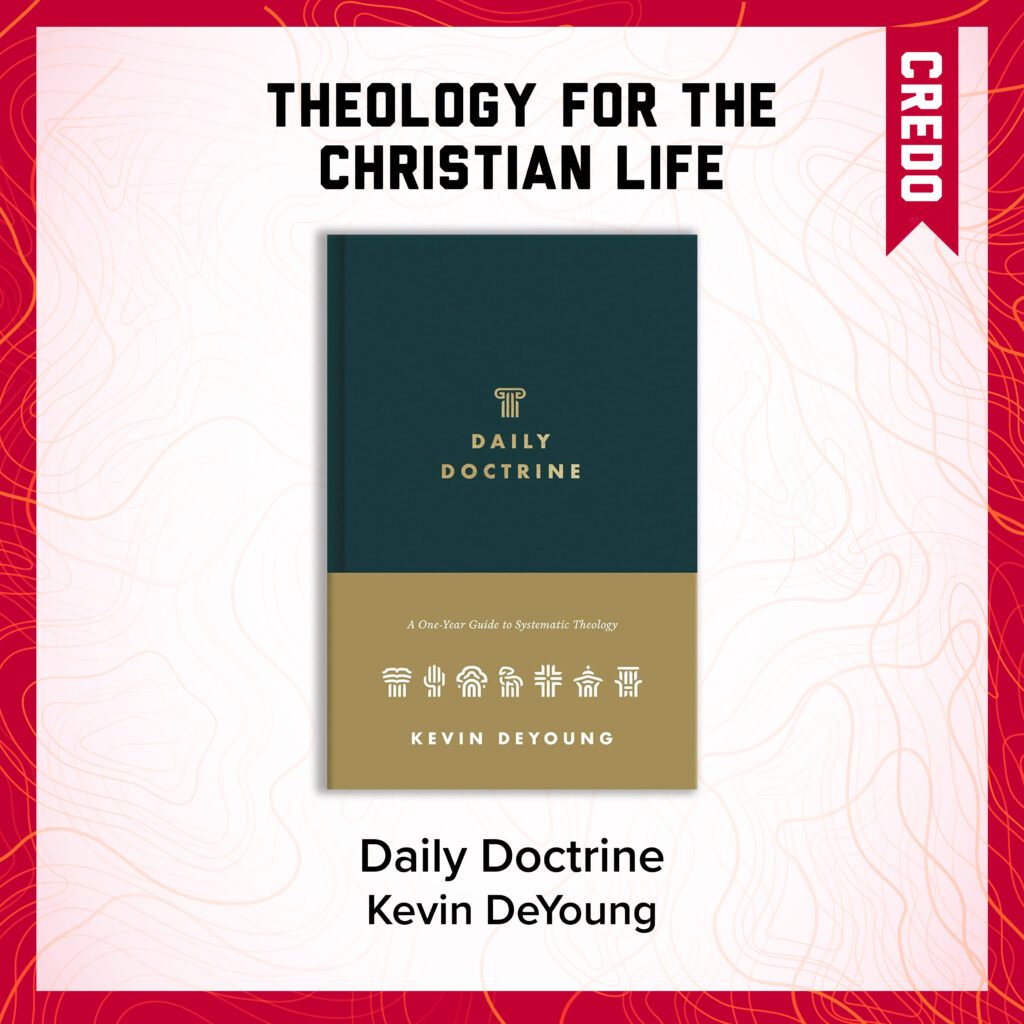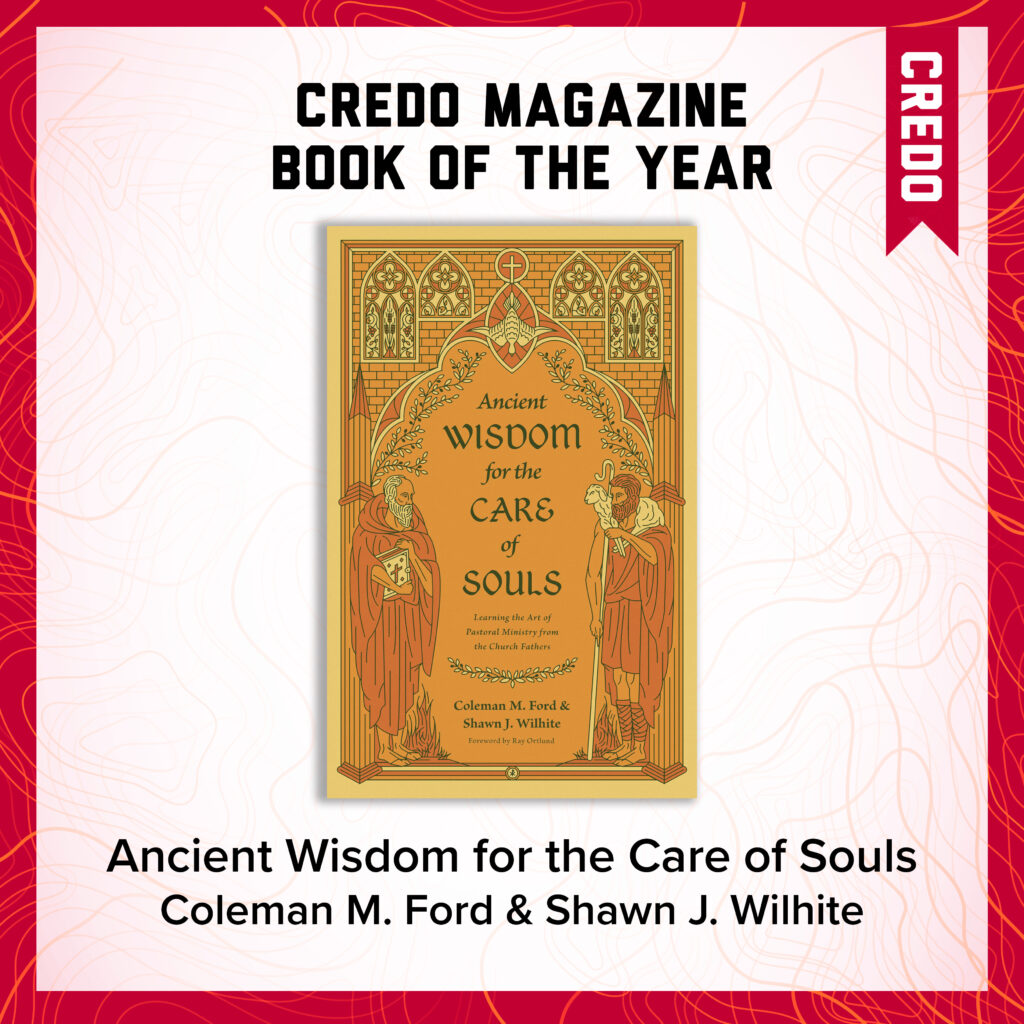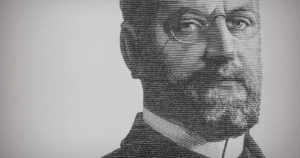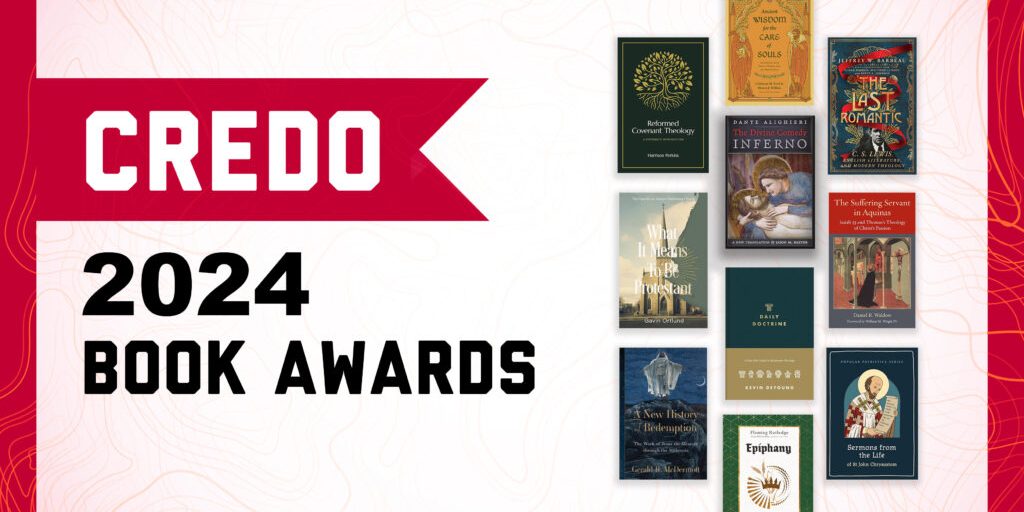
Credo Book Awards 2024
The Credo Magazine Book Awards move past general categories in Christianity at large to give attention and praise to the best works in theology today. But not just any theology will do. In the spirit of Credo itself, these accolades go to those authors who model and advance the retrieval of classical Christianity for the sake of renewal today, and not only renewal in the academy but in the church.
The Judges for 2024
Each year a new set of judges are chosen, judges who are theologians themselves, experts in their field, practitioners of theology in the church and academy, and often Credo Fellows. This year’s judges include:
- Sam Parkison, Associate Director of Theological Studies and Director of the Abu Dhabi Extension Site, Gulf Theological Seminary. He is the author of several books, including To Gaze Upon God: The Beatific Vision in Tradition, Doctrine, and Practice, Proclaiming the Triune God: The Doctrine of the Trinity in the Life of the Church (co-author), as well as The Unvarnished Jesus: The Beauty of Christ & His Ugly Rivals.
- Megan DeVore, Professor of Church History and Early Christian Studies at Colorado Christian University. She has contributed to several works including the chapter “Dynamics of Benefaction in an Early Christian Martyrdom Narrative,” in Rich in Good Deeds: A Biblical Response to Poverty by the Church and by Society and “Contra-Montanism in Carthage? The Passion of Perpetua and Felicity” in Montanism in the Roman World: The New Prophecy Movement in Historical, Sociological, and Ecclesiological Context, ed. H.E. Mader & P. Lampe.
- Adonis Vidu, Professor of Theology at Gordon Conwell Theological Seminary. He is also the author of Atonement, Law, and Justice: The Cross in Historical and Cultural Contexts; Theology after Neo- Pragmatism;Postliberal Theological Method: A Critical Study; and The Same God Who Works All Things: Inseparable Operations in Trinitarian Theology.
- Gwenfair Adams is Professor of Church History, Chair of the Division of Christian Thought, and Director of the M.A. of Spiritual Formation at Gordon Conwell Theological Seminary. Dr. Adams’ specialties in Church History are focused on Medieval and Reformation studies. She is the author of Visions in Late Medieval England: Lay Spirituality and Sacred Glimpses of the Hidden Worlds of Faith and edited the Romans 1-8 volume in the Reformation Commentary on Scripture series.
- Matthew Barrett is the editor-in-chief of Credo Magazine, director of the Center for Classical Theology, and host of the Credo podcast. He is the author of several books, including Simply Trinity (winner of the Christianity Today Book of the Year Award in Theology), The Reformation as Renewal: Retrieving the One, Holy, Catholic, and Apostolic Church, and On Classical Trinitarianism (winner of the TGC book award in theology). He is currently writing a Systematic Theology with Baker Academic. He is Research Professor of Theology at Trinity Anglican Seminary.
- Louis Markos is a Professor of English and Scholar in Residence at Houston University where he holds the Robert H. Ray Chair in Humanities. Some of his 18 books include From Achilles to Christ, Literature: A Student’s Guide, On the Shoulders of Hobbits, and Pressing Forward: Alfred, Lord Tennyson and the Victorian Age.
After consulting each publishing house’s books in 2024 and narrowing the many good books out there down to finalists, the judges evaluated and selected a winner for each category. They have written a short explanation why.
The Credo Books Awards for 2024
We now present to you our winners for 2024.
Systematic Theology & Dogmatics
Harrison Perkins, Reformed Covenant Theology (Lexham Academic)
In the heat of the theological retrieval currently underway, evangelical theology must not lose its mooring in the magisterial Reformation and particularly its covenantal framework. Perkins demonstrates the deep catholicity of Reformed theology, yet without hesitating to highlight its distinctiveness from both medieval scholasticism, on the one hand, and modern theology on the other. Here the idea of covenant receives a thorough biblical, dogmatic, metaphysical and – not least – pastoral treatment.
Theological Retrieval
Gavin Ortlund, What it Means to be Protestant: The Case for the Always-Reforming Church (Zondervan)
Ortlund is to be commended for writing such an irenic yet clear-throated definition and defense of Protestantism. He has done us all a great service by helping to dispel the false dilemma of either embracing Protestant doctrine or being historically rooted and catholically minded. Throughout the book, Ortlund’s warm pastoral heart is never difficult to discern, rendering the vision he paints of Protestantism not only intellectually satisfying but also desirable. We cannot commend this book highly enough.
Patristic, Medieval, and Reformation Theology
Gerald McDermott, A New History of Redemption: The Work of Jesus the Messiah through the Millennia (Baker Academic)
Renowned Jonathan Edwards scholar Gerald McDermott, inspired by Edwards’ unfinished attempt to write a summa of God’s beauty throughout time, deftly traces the history of redemption from Eden to Heaven. Breathtaking in its scope—covering both biblical and ecclesiastical history—the engaging result offers a theological panorama that emphasizes the Messianic nature of Christ and his kingdom.
Natural Theology
Jeffrey W. Barbeau, The Last Romantic: C. S. Lewis, English Literature, and Modern Theology (IVP Academic)
We applaud Jeffrey W. Barbeau for seeing and hearing that deep magic that unites the Romantic poets, and their German Romantic and British Methodist forebears, to Lewis. In the three chapters that make up The Last Romantic: C. S. Lewis, English Literature, and Modern Theology, Barbeau, professor of theology at Wheaton, discerns carefully between those aspects of Romantic subjectivism that Lewis accepted and those he rejected. For Lewis, Christianity represents a logical, coherent, and consistent worldview that engages us on a profoundly human and emotional level. Goodness, truth, beauty, and joy can be sought in our interactions with nature, as long as we remember that the ultimate source of all four lies behind and beyond nature. Lewis never forgot that, though the Romantics sometimes did, leading them to flirt with pantheism.
Translated – Patristic
Translated by David C. Ford, Sermons from the Life of John Chrysostom (SVS Press)
Retrieval is the word of our generation. One potential risk, however, is to forget that those we are retrieving were real people with struggles just as difficult as our own. While works on major doctrines of the faith suitably receive attention, we can neglect the trials of a theologian’s life, mountains he had to climb to arrive at the finish line. David Ford balances our interests, inviting us into the whole life of the John Chrysostom. The church father is best known today for his preaching, but did you know he preached many sermons that were turning points in his own life? Ford puts in the hands of every Christian homilies Chrysostom delivered in the aftermath of everything from earthquakes to exiles. Pastors in particular will benefit as they learn from the wisdom of a patristic pastor who endured much for the kingdom of God. Here is an opportunity not only to retrieve Chrysostom’s theology but the man himself.
Translated—Medieval + Reformation
Translated by Jason M. Baxter, The Divine Comedy: Inferno (Angelico Press)
Dante’s Divine Comedy has proven to be a classic, which is why the novice may be surprised to hear that Dante first wrote this masterpiece in a provocative way: he used the vulgar vernacular of Italian in his day, something frowned upon. This decision proved strategic, a commanding and pervasive way to confront the corruption Dante saw in the church. But it is easy to miss the punch in Dante’s words if a translation tames Dante for the sake of English speakers today. So Jason Baxter has brought the power of Dante’s words, with all their stirring conviction, back to life for the English reader. In this new translation of Inferno, Baxter stands on the reader’s shoulder, interpreting Dante in the reader’s ear, and with no little editorial guidance. Baxter has achieved a herculean feat, one that every student should benefit from.
Thomas Aquinas
Daniel Waldow, The Suffering Servant in Aquinas: Isaiah 53 and Thomas’s Theology of Christ’s Passion (CUA)
With renewed interest in Thomas Aquinas whole new horizons have opened to Protestants. Aquinas holds so much potential for Protestants because he was not only a philosopher and a theologian but a prolific exegete. Today, most scholars are one, the other, or the other, which has unfortunately resulted in sharp separation of the disciplines. Aquinas is so refreshing because he lived at the intersection of all three, exhibiting a remarkable talent for exegesis informed by classical philosophy and theology. Aquinas’s commentary on a text like Isaiah 53 is proof. Daniel Waldow has done the painstaking work of displaying Aquinas’s interpretation of the suffering servant in context, surveying not only Isaiah but Jeremiah, Lamentations, Aquinas’s commentary on the Sentences, the Gospels of Matthew and John, the Pauline epistles, the Psalms, and, of course, the Summa Theologiae. But the value of Waldow’s work really shines when he demonstrates how Aquinas utilized the literal and the spiritual senses of scripture to understand the Christological import of Isaiah 53. Aquinas discloses how this famous chapter speaks to everything from eternal generation to the hypostatic union to the satisfaction of Christ’s atonement. Whether you are an exegete, a theologian, a philosopher, or all three (like Aquinas), Waldow’s book should motivate you to catch up on the Thomistic Ressourcement Series (now at 29 volumes!) edited by Matthew Levering and Thomas Joseph White, two of today best theologians. Perhaps there is a Thomistic Ressourcement yet to take root in Protestantism still.
Imagination, Beauty, and Liturgy
Fleming Rutledge, Epiphany: Season of Glory (IVP)
Few Christians are familiar with the history, theology, and practices associated with the liturgical season of Epiphany. In Epiphany: The Season of Glory, Fleming Rutledge compellingly and lucidly reflects on the significance of the time between Advent and Lent. Classically Trinitarian, historically informed, eloquently worshipful, and replete with Scriptures, this book emphasizes the Christological significance of the Epiphany season and demonstrates how living in the liturgical calendar guides Christians to active wonder and deeper consideration of God’s glory.
Theology for the Christian Life
Kevin DeYoung, Daily Doctrine: A One-Year Guide to Systematic Theology (Crossway)
In the life of a local church there are many priorities. Preaching. Biblical theology. Pastoral theology. But systematics? Systematic theology requires robust precision on the part of the writer and patient, quiet contemplation by the reader. So many churchgoers and pastors grow impatient. And yet, systematic theology is critical to the soul of the church. For we are nothing if we do not know God. Kevin DeYoung’s Daily Doctrine meets an overdue need. He translates systematic theology for the churchgoer, but without forfeiting depth. The reader is tasked with one to two pages of doctrine a day, which can be read in ten minutes or less. Yet rather than presenting doctrines at random around the calendar year, DeYoung guides the reader each day across the landscape of theology, each day building on the last. This book deserves to win because writing deep doctrine in an accessible way, let alone providing an extensive treatment of doctrine across the Christian faith, is extremely hard to do.
Book of the Year
Coleman Ford and Shawn Wilhite, Ancient Wisdom for the Care of Souls: Learning the Art of Pastoral Ministry from the Church Fathers (Crossway)
It is extremely hard to pick just one book as the winner of the Credo Book of the Year. We are looking for a book that models Credo’s commitment to the renewal of classical Christianity today. But we are also looking for a book that embodies the spirit of Credo as well—faith seeking understanding (Anselm). And while many books came close, this year’s winner is Ancient Wisdom for the Care of Souls: Learning the Art of Pastoral Ministry from the Church Fathers, by Coleman M. Ford & Shawn J. Wilhite (Crossway). True, there are countless books today on the church fathers, but few of them probe the pastoral wisdom of the church fathers and do so for the sake of pastors today. Now here is an extraordinary combination that few can pull off. For that reason alone, this book stood out above the rest. The scope of this book is staggering. If you are a pastor preaching on the Trinity, you need to pay attention to the partitive exegesis of the Fathers. If you are a pastor exhausted from the buzz of endless programs, you need the Fathers to remind you of your first priority: contemplating God. If you are a pastor who has neglected the Lord’s Supper in the life of your congregation, you need the Fathers to inject you with their sacramental vision of the church. If you are a pastor stuck in simplistic models of contemporary spirituality bearing little fruit, you need the Fathers to show you the tree of virtue and its ascent to the beatific vision. We could go on (and Ford and Wilhite do!), but by now you sense, we hope, that this is a book that does what it claims, it cares for the soul with ancient wisdom. After reading this book you will be a bit ashamed and ask yourself, “How in the world did I ever think I could flourish in ministry without the church fathers?”
